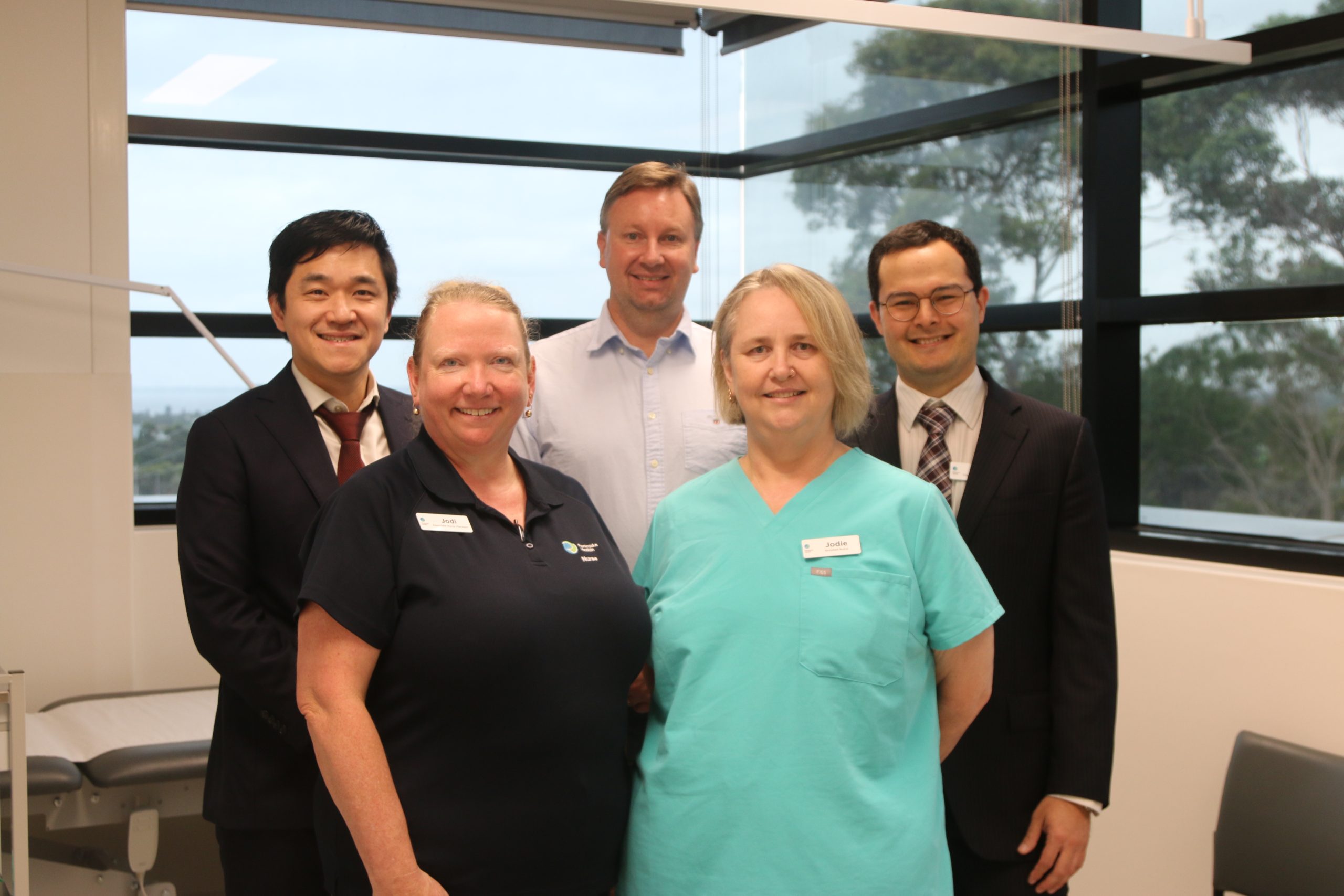Peninsula Health is the first in the State to establish a specialist nurse-led clinic for patients who return a positive stool sample in the Australian Government’s National Bowel Cancer Screening Program.
The weekly clinic enables patients with a positive faecal occult blood test to be seen by a nurse independently within one to two weeks, a much quicker timeframe than ever before.
“Peninsula Health’s new clinic is improving patient outcomes,” says Head of Gastroenterology, Associate Professor Marcus Robertson. “If a patient returns a positive sample, it is often recommended that they have an urgent colonoscopy.”
A faecal occult blood test looks for blood in a stool sample. The test has the ability to find tiny amounts of blood that can’t be seen by the naked eye. Blood in the stool is a common sign of bowel cancer, the fourth most commonly diagnosed cancer in Australia.
“This has been a fantastic collaborative effort between our Endoscopy clinic team led by Dr Kim Be, along with the outpatient and surgical booking teams. We received amazing support from Jodi Villani, the acting NUM of outpatients to implement the new clinic.”
“By training and supporting our Outpatient ANUMs, the establishment of this clinic means any patient who gets referred to Peninsula Health with a positive faecal occult blood test can now be seen by our nurses independently,” shares A/Prof Robertson.
“The nurse will assess their patients’ results and organise a colonoscopy at Peninsula Health, giving them access to the procedure a lot sooner. Patients are able to receive all of their procedural instructions and a date for their procedure at the one appointment.”
“There is a greater than 95% chance of successful treatment if bowel cancer is detected early,” says A/Prof Robertson.
“A colonoscopy commonly detects either bowel cancer or other pre-cancerous conditions such as large polyps, which have the potential to become bowel cancer in the future,” he adds. “If we can pick it up before it reaches that point and remove it, then the patient has a better outcome.”
In 2024, more than 15,000 Australians were diagnosed with bowel cancer. A cancer that develops from the inner lining of the bowel, usually preceded by growths called polyps, which may become invasive cancer if undetected.
Australians aged 45 to 74 are eligible for the free bowel cancer screening test and can complete the test at home every two years.
“I strongly encourage all members of our community who are eligible to complete the test when it arrives in the mail,” says A/Prof Robertson. “It has been shown in numerous studies to improve bowel cancer survival rates.”
Members of the Frankston and Mornington Peninsula can now feel reassured that they will receive expert, timely care should their screening test return a positive result.
For more information on the National Bowel Cancer Screening Program, visit National Bowel Cancer Screening Program.

